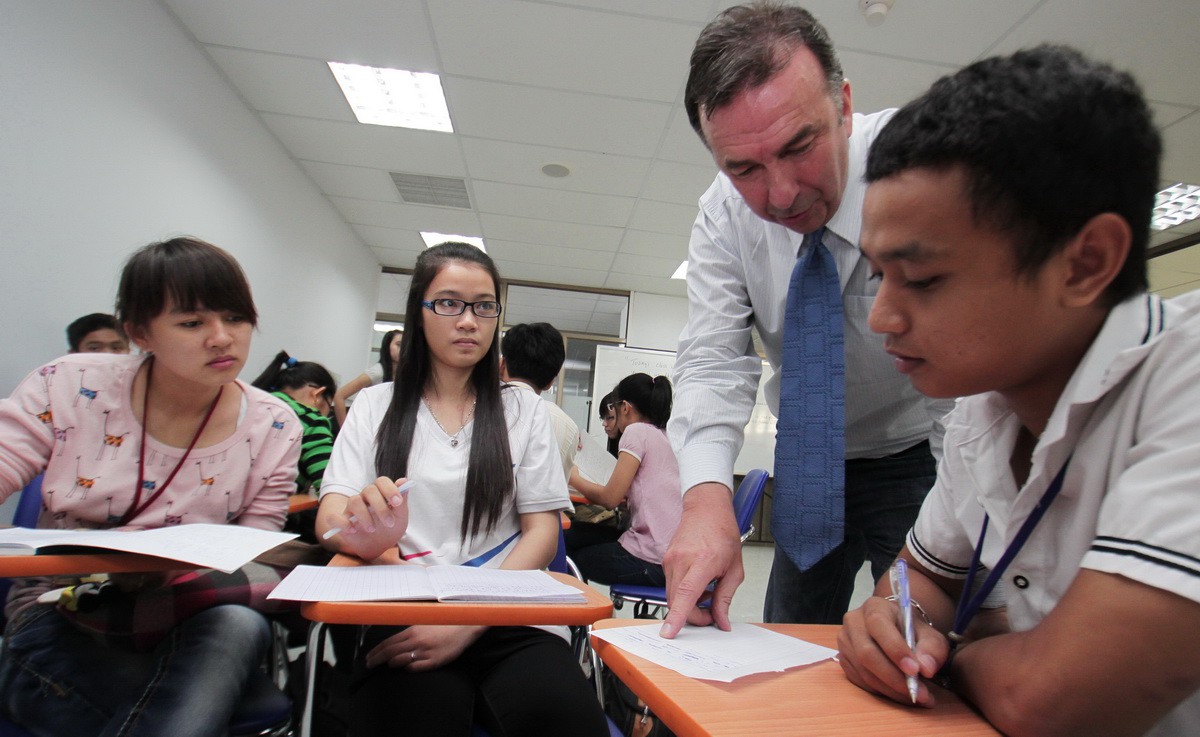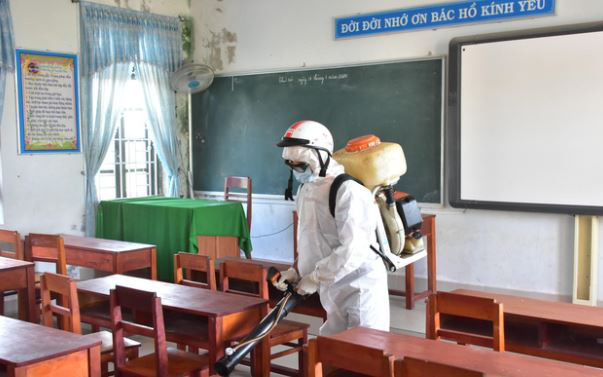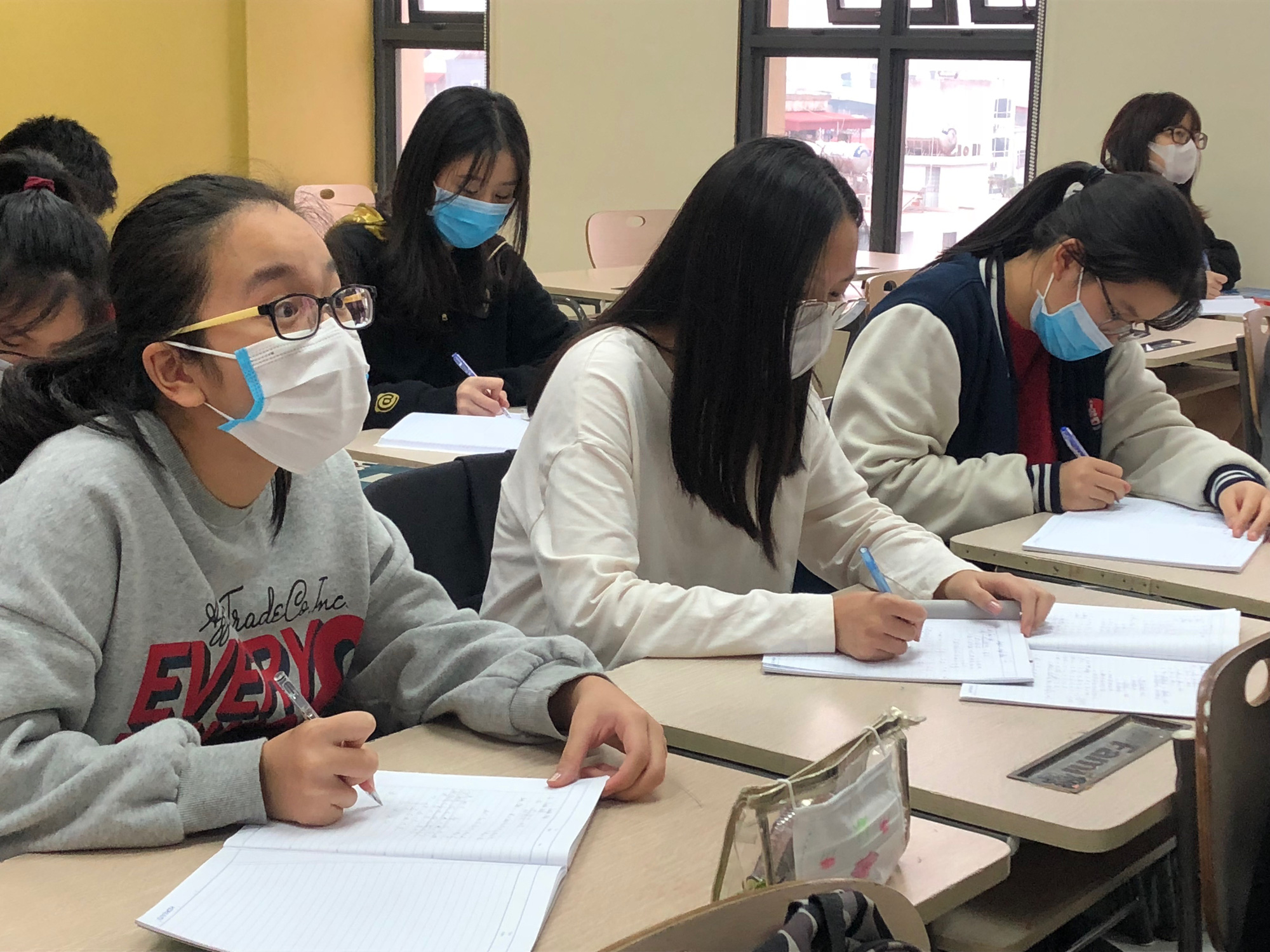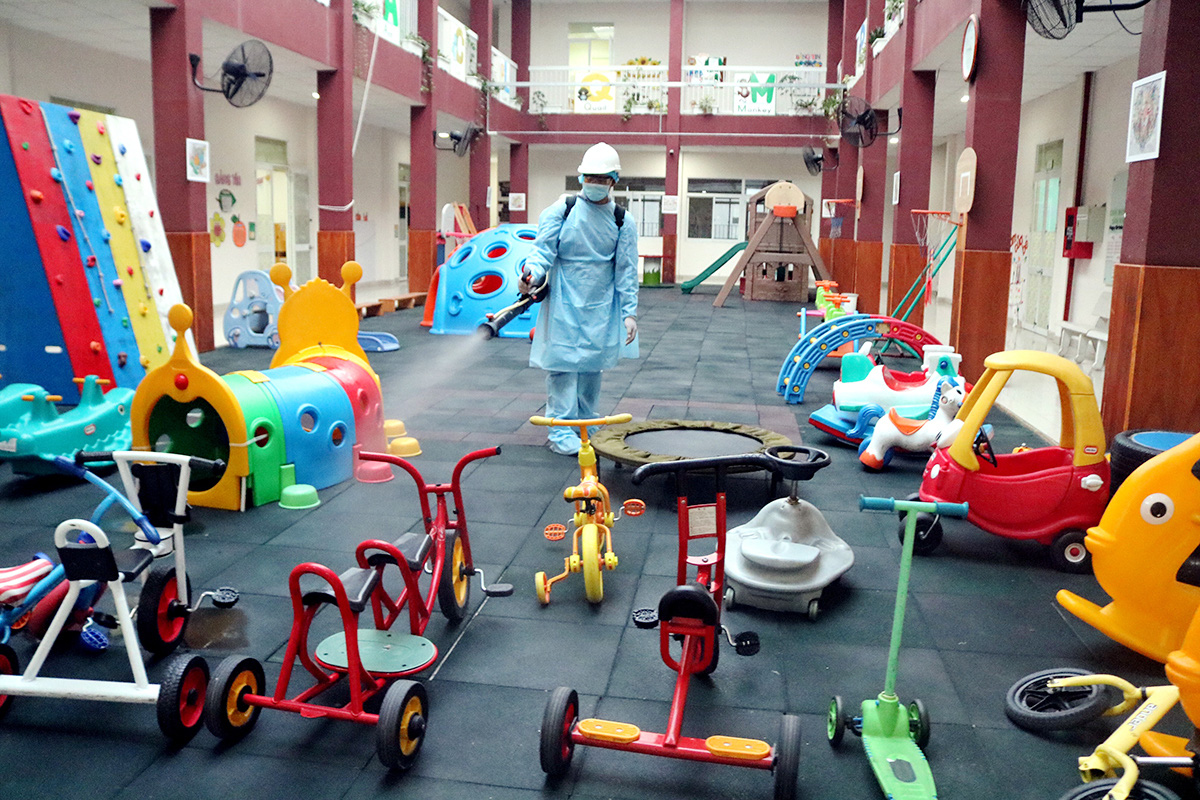As schools in most provinces and cities in Vietnam are closed until at least the end of February in light of the novel coronavirus disease (COVID-19) epidemic, English teachers at local language centers who are paid by the hour are starting to feel the impact.
COVID-19, which first surfaced in the central Chinese city of Wuhan in December 2019, has infected over 75,100 people and killed 2,009 globally as of Wednesday morning, according to the South China Morning Post.
Vietnam has so far confirmed 16 infections, including 13 Vietnamese, two Chinese, and one Vietnamese American. Eleven of them had recovered and been released from the hospital as of Tuesday evening.
The administrations of dozens of provinces and cities have announced schools would remain closed until the end of February, extending an already weeks-long break since the end of January, to prevent the spread of COVID-19.
The People’s Committee of Ho Chi Minh City is even seeking approval from the government and the Ministry of Education and Training regarding its wish to prolong the break to the end of March.
Although the closure is applied to public schools, private language centers have also followed suit in allowing their students to stay home due to parents’ concerns over their children’s risk of contracting COVID-19 from classmates.
Tuoi Tre News reached out to some teachers at local language centers to understand how the nearly month-long break has affected them personally.
|
|
| A worker disinfects a classroom in Thua Thien - Hue Province, Vietnam. Photo: Ngoc Minh / Tuoi Tre |
'I may have to go home'
Gianna Liccio from the U.S., who has been teaching in Ho Chi Minh City for one and a half years where she works full-time for a small language center, says the month-long break is taking "a massive toll" on her income.
"Thankfully, I still work for another center, which is not closed. Some of the work I do is school-based, but I only work for them approximately 2-4 hours per week," she told Tuoi Tre News.
"It’s something, but obviously not enough."
Outside of education, Liccio said she has also picked up work at a friend’s bar to try to get the day-to-day expenses paid and considers herself "very lucky" to have such an opportunity.
She spends her free time trying to figure out how to calculate her next step as well as finding other opportunities to make some extra cash.
With her visa expiring at the end of March, she has considered leaving the city.
"If the closure continues, I don’t think I can justify staying -- although I don’t know exactly where I’ll go otherwise," Liccio said, adding that she "may just go home."
The American teacher said most parents she has heard from have expressed their desire to have their children back in school, as many students she works with struggle with the in-home curriculum.
"It’s clearly not the best way to assure the quality education they deserve. It is also very difficult for parents, as many of them now need to find nannies for the time that they work," Liccio said.
|
|
| Students wear face masks while attending class at Marie Curie School in Hanoi, February 1, 2020. Photo: Vinh Ha / Tuoi Tre |
Yusef Tahiru, another Ho Chi Minh City-based teacher from the U.S., said he has never seen a school closure of such nature during his three years working at a local language center.
His center has been closed for about two weeks after Tet, or the Lunar New Year holiday, and will be closed for two more weeks.
After traveling home for two weeks prior to Tet, Tahiru thought he would be able to return from his trip and work to recover the financial losses. He now finds himself struggling to find a source of income as many other teachers do.
"Personally, I have some money saved, but that money is running out, so I've been looking for other jobs such as voice acting and voice-over work," Tahiru said.
With a bachelor's degree in exercise science, the man is also working as a personal trainer for a few friends to supplement his income.
Impacts beyond students and teachers
Breandan Clements from South Africa has been living in Vietnam since July 2017 and now teaches English at a center in Ho Chi Minh City that has remained closed until at least the end of February.
"These preventative measures have affected our language center severely as lessons will now have to be taught at a later date with no extra cost to students," he said.
"Unfortunately, this places the school in an awkward position as many of the administrative and security staff are still working, so the school is still incurring expenses."
Similarly, he said, the teachers are affected as most language centers operate on an hourly payment system, and "no class means zero income."
Expenses like rent, water, electricity, and food are eating up the life savings of teachers like Clements. His colleagues who have to financially support their families back in their home countries are among the most profoundly impacted by the closure.
"Unfortunately, many teachers will really suffer as they do not have sufficient funds to last much more than a month," he said.
Clements said he possibly needs to consider moving to cheaper accommodations and greatly reducing his spending on food and other leisurely activities should there be a longer suspension of lessons.
"If parents were to take extreme measures of prevention by not sending their children to school for the rest of the semester, my partner and I would have to strongly consider finding other revenue and income sources such as online or private tutoring," he said.
If all else fails, the COVID-19 epidemic may cause Clements to "leave Vietnam entirely" and find jobs in other countries, which he considers "both frustrating and deeply saddening."
|
|
| A worker fumigates a kindergarten in Binh Thanh District, Ho Chi Minh City, Vietnam, February 12, 2020. Photo: Ngoc Phuong / Tuoi Tre |
Tough times
Erin Michael from the Republic of Ireland has been teaching English in Hanoi since March 2019, after having worked in Ho Chi Minh City between 2015 and 2018.
His center in the Vietnamese capital has been shuttered since February 3, and it seems that it will remain closed at least until the end of February.
"As I get paid per hour and am working zero hours this month, I will receive absolutely no pay during this time," Michael said, adding that around ten other teachers at his campus and numerous others at the center's four campuses in Hanoi are similarly affected.
The Irishman considers himself "one of the luckier teachers" with a full-time contract, as teachers with part-time agreements are most likely to have significantly fewer classes.
Michael said the timing of this closure could not have been worse as the period after Tet is already usually the toughest time of the year for teachers working at language centers, with student numbers going down after the weeks-long holiday.
"I really have to budget closely and try not to spend too much at the moment," he said.
Dong Nguyen Thanh Trung, a Vietnamese teacher at an English language center in Ho Chi Minh City, told Tuoi Tre News morale among teachers has turned sour quickly despite initially welcoming the closure as a much needed break for overworked teachers.
"At first it was a happy situation for most of the teachers, I believe, including me, since we'd had only 7 days off for Tet," Trung said.
"But after the second week off of work, the struggle dawned upon us, financially and emotionally."
Being paid hourly, Trung said he does not have a fixed salary for every month, so a day off means a day unpaid, and a month off means being "constantly financially unstable" for teachers who do not have other jobs.
"I want to get back to school as much as the students do, but since the choice is not for me to make, I guess we'll have to wait, but hopefully not for long," he said.
Moving classes online
Nguyen Hong Nam, general director of the Yola English center with locations in both Hanoi and Ho Chi Minh City, said the current closure affects nearly 10,000 students, 600 classes, and more than 350 teachers across its campuses.
As a solution, Yola launched an online learning platform and was able to register and prepare over 3,000 of their current students to be online within 24 hours of the school shutdown, so there was "minimal disruption" to their learning.
"Over the past two weeks, this number has grown to over 6,000 students, and we expect it to continue to increase," Nam said.
|
|
| Nguyen Hong Nam, general director of the Yola English center. Photo: Yola |
Thanks to the system, all of Yola's centers are staffed as if they were delivering traditional classes, and parents and students can contact them for any concerns, the general director said.
Nam admitted some teachers felt unstable and decided to go back to their countries, but "most decided to stay."
"That being said, there has absolutely been disruption to our teacher’s income because the shutdown of schools was so sudden," he said, adding that teachers have had to lose teaching time to attend training on how to operate the online platform.
|
|
| A teacher delivers a lesson via the Yola English center’s online platform amid a school closure due to COVID-19 in Ho Chi Minh City, Vietnam. Photo: Yola |
Like us on Facebook or follow us on Twitter to get the latest news about Vietnam!


























































